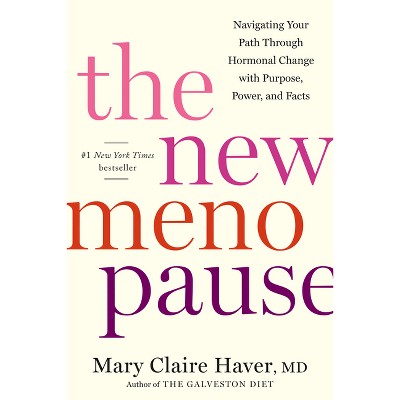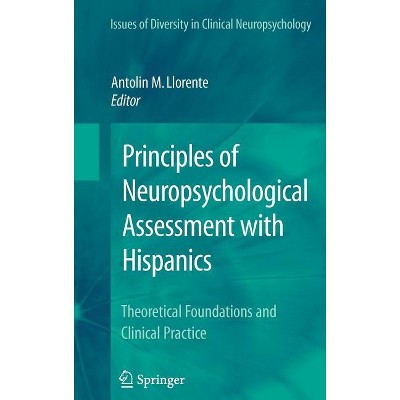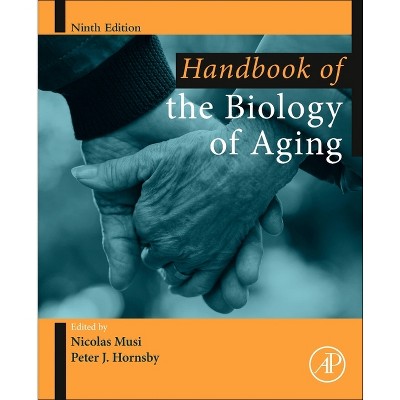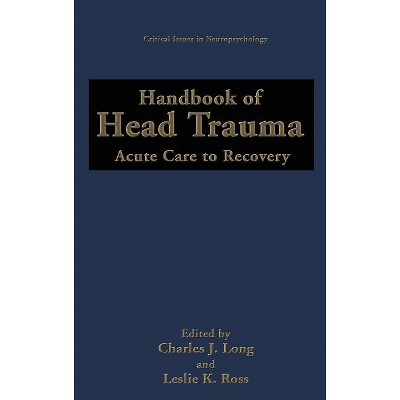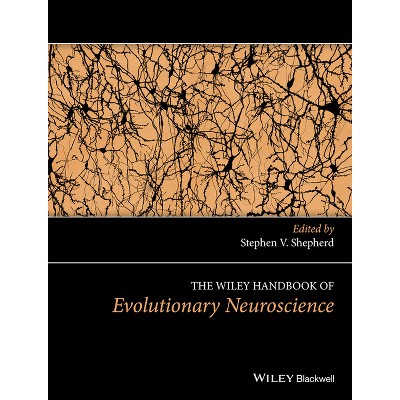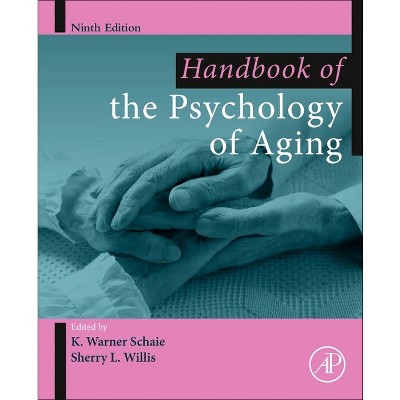Handbook on the Neuropsychology of Aging and Dementia - (Clinical Handbooks in Neuropsychology) by Lisa D Ravdin & Heather L Katzen

About this item
Highlights
- With the aging of the baby boomers and medical advances that promote longevity, older adults are rapidly becoming the fastest growing segment of the population.
- About the Author: Lisa Ravdin, Ph.D., ABPP-CN is a board-certified neuropsychologist and director of the Weill Cornell Neuropsychology Service in the Department of Neurology and Neuroscience at new York Hospital Presbyterian Hospital-Weill Cornell Medical Center.
- 527 Pages
- Psychology, Neuropsychology
- Series Name: Clinical Handbooks in Neuropsychology
Description
About the Book
This book offers a hands-on guide to identifying dementia. It details special considerations for conducting neuropsychological assessments and illuminates symptoms associated with specific disorders and their relationship to functional impairments.
Book Synopsis
With the aging of the baby boomers and medical advances that promote longevity, older adults are rapidly becoming the fastest growing segment of the population. As the population ages, so does the incidence of age related disorders. Many predict that 15% - 20% of the baby-boomer generation will develop some form of cognitive decline over the course of their lifetime, with estimates escalating to up to 50% in those achieving advanced age. Although much attention has been directed at Alzheimer's disease, the most common form of dementia, it is estimated that nearly one third of those cases of cognitive decline result from other neuropathological mechanisms. In fact, many patients diagnosed with Alzheimer's disease likely have co-morbid disorders that can also influence cognition (i.e., vascular cognitive impairment), suggesting mixed dementias are grossly under diagnosed. The Clinical Handbook on the Neuropsychology of Aging and Dementia is a unique work that provides clinicians with expert guidance and a hands-on approach to neuropsychological practice with older adults. The book will be divided into two sections, the first addressing special considerations for the evaluation of older adults, and the second half focusing on common referral questions likely to be encountered when working with this age group. The authors of the chapters are experts and are recognized by their peers as opinion leaders in their chosen chapter topics. The field of neuropsychology has played a critical role in developing methods for early identification of late life cognitive disorders as well as the differential diagnosis of dementia. Neuropsychological assessment provides valuable clinical information regarding the nature and severity of cognitive symptoms associated with dementia. Each chapter will reinforce the notion that neuropsychological measures provide the clinician with sensitive tools to differentiate normal age-related cognitive decline from disease-associated impairment, aid in differential diagnosis of cognitive dysfunction in older adults, as well as identify cognitive deficits most likely to translate into functional impairments in everyday life.From the Back Cover
This book offers practitioners a hands-on guide to bedrock clinical tasks. The first half of the volume addresses special considerations for conducting neuropsychological assessments of older adults, such as disease management issues, sleep concerns, and ethical matters. The second section illuminates symptoms and issues associated with specific disorders and their relationship to functional impairments. Information is presented in a practitioner friendly format with sample cases, test battery recommendations, and "clinical pearls" from recognized experts in the field. Among the Handbook's topics:
- Serial assessments in dementia.
- Considerations for neuropsychological evaluations with older minority patients.
- Impact of medications on cognition.
- Assessing depression and anxiety in older adults.
- Prevention of cognitive decline.
- Plus in-depth chapters on late-life cognitive impairment resulting from Alzheimer's disease, vascular cognitive impairment, cancer, stroke, epilepsy, and a variety of other conditions.
Useful and informative well beyond its immediate specialty, the Handbook on the Neuropsychology of Aging and Dementia is a practical reference for neuropsychologists, neurologists, primary care physicians (geriatricians, internists, family doctors), health psychologists, clinical psychologists, and clinical social workers.
Review Quotes
From the reviews:
"This is a practical guide to assessment, recommendations, and prevention of cognitive decline and dementia. ... The chapters are organized fairly uniformly ... . The book includes helpful tables and figures as well as some clinical case examples. ... this will be an invaluable resource, both for seasoned veterans and novice clinicians. It also will be of great assistance to neuropsychologists who are considering changing their focus to older adults." (Gary B. Kaniuk, Doody's Book Reviews, January, 2013)
"A 'must have' for the bookshelves of any neuropsychologist who sees or wants to see older adults. ... Hats off to Drs Lisa Ravdin and Heather Katzen for putting together such a useful, well written addition to the Clinical Handbook series ... . I recommend this book to anyone who is involved in or considering providing assessment to older adults. I guarantee it will provide you with new perspectives and/or issues to consider as you move forward in your clinical practice." (Laura A. Flashman, Clinical Handbooks in Neuropsychology, 2013)
About the Author
Lisa Ravdin, Ph.D., ABPP-CN is a board-certified neuropsychologist and director of the Weill Cornell Neuropsychology Service in the Department of Neurology and Neuroscience at new York Hospital Presbyterian Hospital-Weill Cornell Medical Center. After graduating from the Chicago Medical School doctoral program, she completed an internship at the West Haven VA medical Center and Yale Epilepsy Program where she received the Jacob Levin Intern Award for Outstanding Clinical Scholarship. Subsequently, she underwent advanced training in a neuropsychology post doctoral fellowship at New York University School of Medicine-Hospital for Joint Diseases, as well as a neuropsychology fellowship at the New York Hospital-Cornell Medical Center. Presently, her primary clinical and research activities focus on cognitive changes associated with neurologic disorders and, in particular, age-related diseases. In addition, she is a co-investigator on a number of research initiatives relating to cognitive decline associated with neurologic disease (Alzheimer's disease, Parkinson's disease, normal pressure hydrocephalus) and depression. Heather Katzen, Ph.D. is assistant research professor in the Department of Neurology at the University of Miami Miller School of Medicine and adjunct research assistant professor in the Department of Neurology and Neuroscience at Weill Medical College of Cornell University. She received her doctoral degree in clinical psychology/neuropsychology from the University of Miami and completed a post doctoral fellowship at New York Hospital/Weill Cornell Medical College. She is a member of the International Neuropsychological Society, the Cognitive Neuroscience Society, and American Psychological Association, Division 40, Neuropsychology.Shipping details
Return details
Trending Diet, Health & Fitness Books


